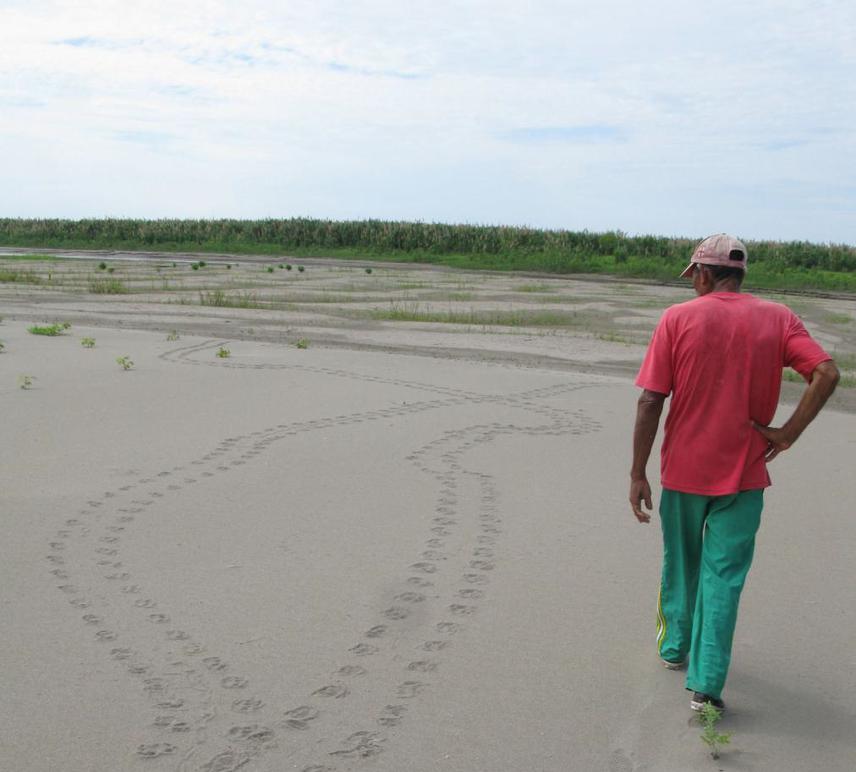Sarita Kendall
Other projects
The project aims to strengthen community commitment to conservation through local participation in education and monitoring of aquatic resources.
In 2005 the Natütama Foundation built an Interpretation Centre representing the Underwater World and the Beach by Night to reinforce local conservation/education programmes and create awareness among visitors to the area. We work entirely with local educators, guides and fishermen who receive small subsistence payments. Our programme reaches over 4000 people in frontier Amazon communities and schoolchildren in Bogotá and Cali. This is a permanent, ongoing process to help preserve Colombia’s Amazonian wetlands.

While our work is directed at the aquatic ecosystem, we also target specific species for conservation, using international and local criteria: manatees (Trichechus inunguis) and pirarucu (Arapaima gigas) because of hunting threats; side-neck turtles and herons because of local exploitation of the eggs and young; dolphins, sloths and boas because of conflicts related to fishing and tourism.
The project aims to intensify and extend community commitment to conservation. Climate variables and additional species (boas, herons) will be incorporated into the monitoring programme (manatees, turtles, pirarucu fish) carried out by 10 fishermen/co-researchers. Environmental education activities by indigenous educators will cover over 900 schoolchildren a week, 5000+ visitors to the Natütama Interpretation Centre a year and training for 25 local tourist guides. New educational tools will be developed, including story carvings, a story bank and diplomas representing an endangered species for each year of primary school.
By combining specific actions and long term strategies to help preserve species and ecosystems with a creative, intensive environmental education programme we are helping to forge a culture for conservation in Amazon communities. In frontier communities of Brazil and Peru local people want to adopt the model of fishermen/hunters as wildlife guardians, supported by indigenous educators.
Climate change and growing tourism represent new threats: our education work reinforces adaptive strategies based on cultural and environmental values and we are helping to reduce tourist impact through guide training and visitor programmes at the Natütama centre. All our research and monitoring results are fed directly back into the community, allowing local people to feel the benefits of conservation and empowering them to develop more sustainable options for the future.